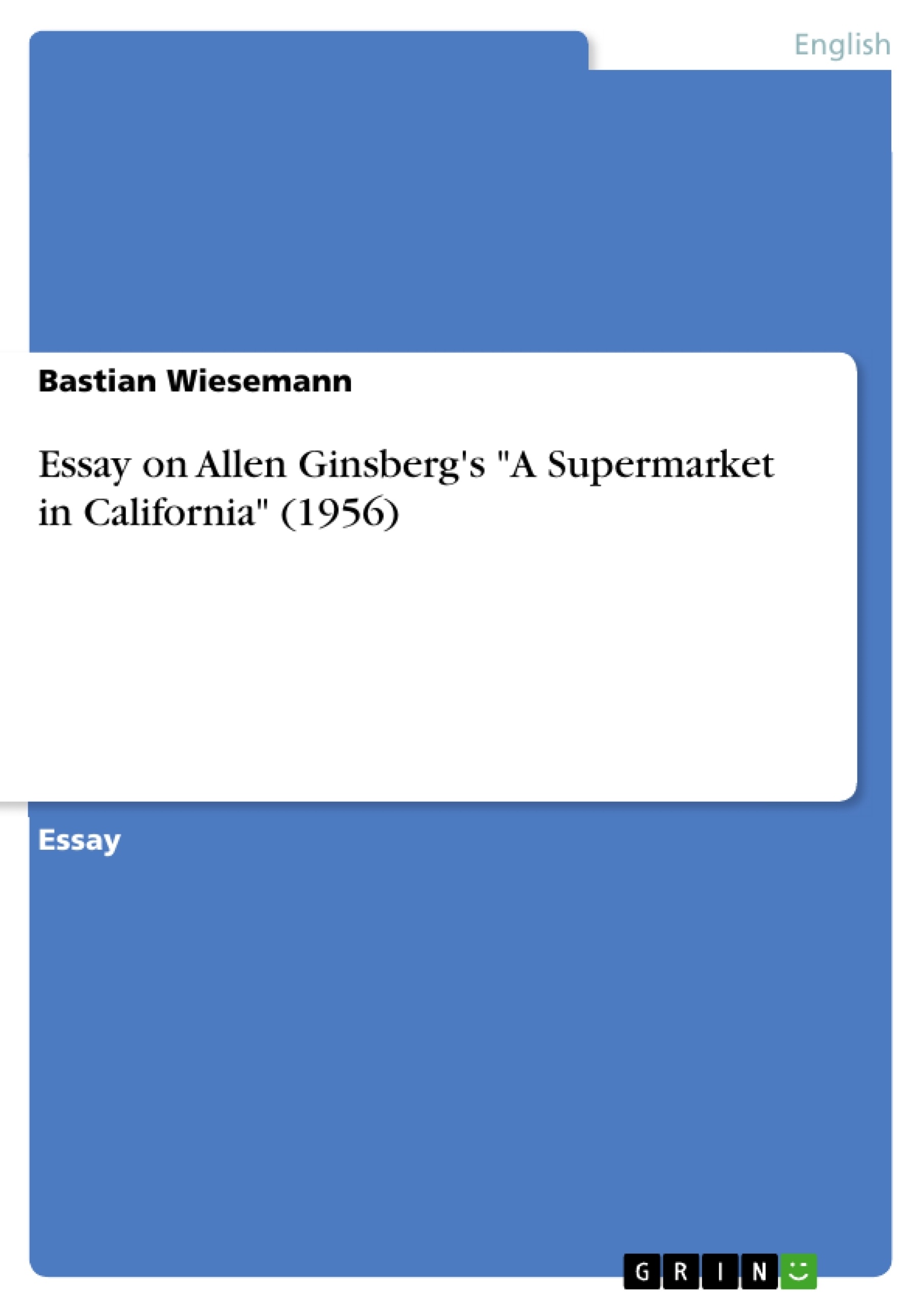According to Michael Meyer poetry in fixed verse “can be compared to the regular figures of classical ballet, free verse to the variable movements of modern dance, whose patterns are very flexible but nevertheless follow a choreography”.
In this essay I would like to take a look at Allen Ginsberg’s poem “A Supermarket in California” analyzing its “variable movements” in order to get an idea of the “choreography” it is based on.
Bientôt vous trouverez ici un extrait.
Fin de l'extrait de 3 pages
- haut de page
- Citation du texte
- Bastian Wiesemann (Auteur), 2005, Essay on Allen Ginsberg's "A Supermarket in California" (1956), Munich, GRIN Verlag, https://www.grin.com/document/154816
Lire l'ebook



